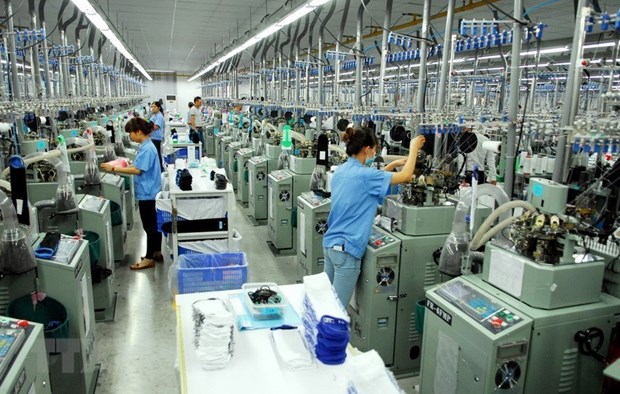
HÀ NỘI — Besides churning out high-quality products, Vietnamese producers must meet other strict requirements of importers, including a good governance system, to enable them to participate in the global supply chain, experts said.
Nguyễn Thị Thu Thủy, deputy director of the Ministry of Industry and Trade’s Export Supporting Centre, said Việt Nam's economy has continued to see significant changes in its export structure in recent years. From a country with agricultural produce and products of large labour-intensive industries being major export staples, Việt Nam is gradually seeing higher-tech export products with high added value, such as precision mechanical products, electronics and components.
However, according to Phan Long, director of the AFA Research & Education, some Vietnamese firms said they can produce screws for Swiss watches, but can’t manufacture screws to sell to Samsung.
It is not because of the firms’ incapacity. The component suppliers can produce high-quality products, but they fail to meet other strict requirements of global major buyers. Samsung, for example, requires Vietnamese firms who want to become their supply partners to have patents and low selling prices.
Koray Derman from Arcelik, a subsidiary of Turkish household industrial products and services groups Koc Holding Group that is looking for the source of electronic products and components from Việt Nam, said Arcelik operates mainly in the European market, which applies strict requirements so Arcelik's partners also need to satisfy the standards.
"We expect our potential partners to have a good supply chain management system. Notably, a resource management system is a must. Besides, the partners must develop their own supply system rather than relying entirely on China. If they depend on China, we might have to bear many risks and losses," Derman told vneconomy.vn.
As Arcelik doesn’t use intermediaries but orders goods directly from suppliers, besides reasonable prices, environmental standards, good logistics and after-sales services, Arcelik’s suppliers need to have good governance systems so they can manage their supply well. In particular, suppliers need to have their own design and testing systems, Derman said.
To meet the buyers' requirements, Long suggested Vietnamese firms should change the entire governance structure to streamline and cut down on intermediaries to save costs.
“If domestic firms want to participate in the global supply chain, they need to digitalise to streamline and cut costs through a comprehensive change in governance,” said Long. — VNS